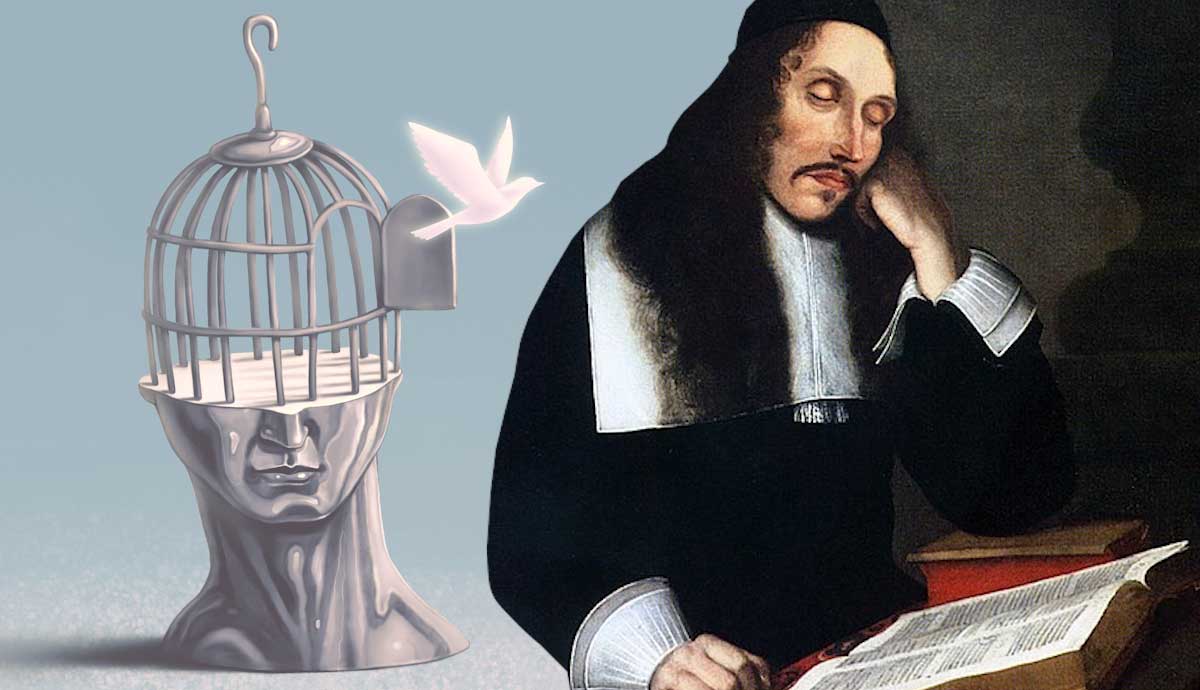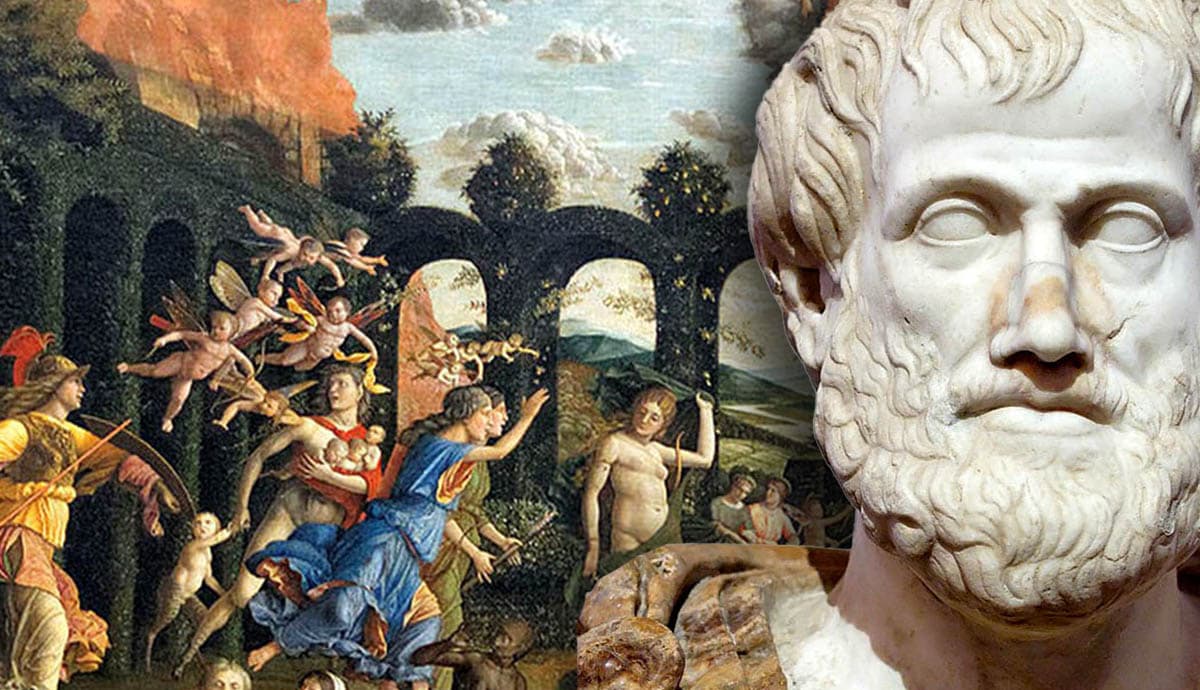
Baruch Spinoza’s ethical philosophy looks markedly unlike most other ethical philosophy. The good, for Spinoza, is defined only in relation to the individual and their nature. The good for Spinoza is highly personal; what is good for different people may be radically different, too. These differences are a difficult foundation on which to build a politics. It is difficult to reconcile the goods and interests of an entire populace in a single set of prescriptions on governance. Spinoza’s attempt to provide this reconciliation is fraught with apparent inconsistencies and tensions, many of which hinge on the question of whether Spinoza really leaves room for binding normative prescriptions.
Baruch Spinoza on Rights

Spinoza’s use of “right” strains against our contemporary understanding of the word. Indeed, though Spinoza still couches his political commentary in terms of rights, he dissolves the distinction between right and power entirely.
Spinoza does refer to “sovereign natural right” in his Tractatus Politicus (hereafter TP), but in doing so is talking not so much about certain intrinsic or enshrined rights that people have naturally, but rather to the right (and necessary rightness) of nature itself. These “rights” are still God-given for Spinoza, insofar as God is nature, but they never run against the grain of the way nature is structured.
What never crops up, in Spinoza’s view, are cases where a person’s rights are violated, since whatever we might conventionally see as a violation of a person’s rights can happen only by the “right” of nature. If, for instance, I am imprisoned for no crime at all, this is not a violation of some natural right to freedom, or in contradiction with some divine obligation to treat me otherwise. My rights extend only so far as my power extends, and if I cannot make myself free, then I have no right to be so.
Conversely, it would be a misunderstanding to say Spinoza sees such actions (say, my arbitrary incarceration) as good, or even justified. These categories also fall away, and it appears that right has disappeared from view altogether, having been defined into obsolescence by Spinoza’s claim that right is coextensive with power.
People, Nature, and Power in Spinoza’s Thought

Persons, then, are simply parts of nature. That is, they are parts of God’s substance and bound by His laws, which are laws of nature rather than moral obligations in the ordinary sense.
It seems at first glance strange, even paradoxical, that given this radically naturalist attitude, Spinoza is best known for his writing on ethics and politics. The only obligations or imperatives that underlie Spinoza’s political philosophy are those laid out in his Ethics, which warrant a brief elaboration.
The Ethics does not propose a set of pre- or pro-scriptions for actions based on virtue, utility, or duties, but rather suggests that actions are good when they increase of power to act, and bad when they decrease it. This claim is, in turn, bound up with questions of knowledge and causality, since good actions are caused by clear ideas, and bad actions by confused ones. What one has the right to do and what is best to do are not quite identical.
Spinoza acknowledges in the TP that there is a gap between acceptable and best courses of action, but it’s a distinction that appears to ride on the existence of volition—on the existence of several possible courses of action.
Normativity in Spinoza’s Political Philosophy

As a consequence of Spinoza’s framing of rights, what is notably absent from his political philosophy are normative prescriptions of the kind we are used to seeing. The parameters Spinoza proposes for political organization tend to proceed from observations about human psychology, or patterns of behavior, rather than from universally binding constraints on how people should behave or treat one another.
It would be mistaken to suggest that there is no ethical character to Spinoza’s concept of right, but there is no clearly normative character to it. It is not the case that a particular should have certain rights; they merely do or do not have them.
Spinoza seems to leave room for a certain kind of normativity, insofar as he seems to believe in the existence of general rules or tendencies in the maximization of the power to act, and in policies corresponding to those tendencies.
In one sense, it seems we have plenty of reasons to treat Spinoza as a thoroughgoing naturalist, whose attitude towards political and moral right alike boils down to something like “if you can do it, then it’s allowed,” without caveat or limit. On the other, if we take certain tendencies in maximizing power rigidly, we can end up with some fairly strong prescriptions for political behavior.
Distinguishing What Is Acceptable From What Is Best

This is the line Spinoza seems to take in the TP, where he distinguishes acceptable from best activity of the state. If the state has the right to do anything it can do, its best course of action may still, Spinoza tells us, be picked out from amongst a range of tolerable possibilities.
The best society is, for Spinoza, a harmonious one, and while he considers a number of possible political arrangements—namely, monarchy, aristocracy, and democracy—he advises in all cases a range of basically democratic features. The case for these features finds its groundwork in the Ethics, since minimizing conflicts of interests between persons plausibly maximizes the sum-total of the state’s persons’ power to act.
A number of ambiguities arise here, however, as Spinoza sometimes speaks about the sovereign as the collective total of its citizens’ power, and at other times conceives of the sovereign as an independent entity, whose motivations include the fear of overthrowal. It becomes difficult, in short, to resolve whether Spinoza’s prescriptions are merely instrumental, or whether they emerge from the principles laid out in the Ethics.
Ethics and Volition

The individual ethical side of this query over power and normativity is raised in Spinoza’s correspondence, where he addresses cases in which the normal rules of thumb for maximizing power don’t hold. In his Epistle 36 to Blyenbergh, a Dutch Merchant with whom Spinoza exchanges letters discussing several points from the Ethics, Spinoza writes:
“So anyone who clearly saw that, by committing crimes, he would enjoy a really more perfect and better life and existence, than he could attain by the practice of virtue, would be foolish if he did not act on his convictions. For, with such a perverse human nature as his, crime would become virtue.”
In short, it seems that Spinoza’s naturalism doesn’t leave much room for prescription at all, so long as one happens to enjoy and gain power from whatever it is that one is doing. Even the claim that such a criminal’s nature is perverse appears, by Spinoza’s lights, defensible only as a statement of its comparative rarity.
The political implication of this, however, seems even more intuitively worrying than the case of the virtuous criminal. For all the much-championed talk of freedom of expression and religious toleration in the TTP, the argument from the letter to Blyenbergh seems to leave all of that contingent. Spinoza’s reception as a proto-liberal thinker is misguided if what his defenses of liberty amount to is really a guidebook on avoiding unrest and revolution. It is not hard to find examples of sovereigns whose power and methods resist overthrowal while side-stepping Spinoza’s milder suggestions, and there is little in the TP to suggest that Spinoza would take a dim view of such states.
Social Contracts and the Problem of Baruch Spinoza’s Politics

One corollary of Spinoza’s naturalist approach to power and rights is that it seems to render political power startlingly contingent. The TP is, in Justin Steinberg’s assessment, intended to expand the scope of the Ethics from the scale of the individual to that of society. It also, however, along with Spinoza’s earlier political text, the Tractatus Theologico-Politicus (1670, hereafter TTP), runs up against the very limited normativity Spinoza binds himself to.
Despite a number of scholars’ attempts to salvage the coherency of Spinoza’s political philosophy, his proposal of absolutely binding social contracts in the TTP seems to directly contradict any naturalist theory which situates rights as merely an expression of power.
Spinoza’s advocacy for social contracts, abandoned in the later TP, is particularly surprising given that he criticizes social contract-derived obligation in distinguishing his theory of right from Hobbes’s.
“I always preserve the natural right in its entirety and I hold that the sovereign power in a State has right over a subject only in proportion to the excess of its power over that of a subject.”
Spinoza, Epistle 50
If the state’s right over its subjects (and with it, presumably, its right to obedience from them) extends only according to its power over them, then any use of the word “obligation” seems out of place. That is, if we conceive of obligation as implying volition—some kind of power to act otherwise than one is obliged to—then it has no place in Spinoza’s naturalist scheme.
The figure of the sovereign seems somewhat confused in Spinoza’s writing, veering between a mere expression of the collective power of his or her subjects and an authority with a right to absolute obedience. Underneath this oscillation, however, seems to lurk a kind of paralysis. Spinoza’s politics is thrice hemmed in by his determinism, which undermines the idea that we are able to act otherwise than we do; his naturalism, which dissolves the boundary between what we can do and what we have the right to do; and his conception of God as nature, which does away with any transcendental standard for human action.










